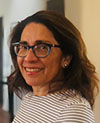
14 May What’s your story?
As a translator and interpreter, language and words are my passion. I suppose it’s not really a surprise that I find myself drawn to writing.
A few years ago, the little voice inside me telling me to write grew more insistent. I had been blogging about T&I for a while but wanted to write more in Spanish—in part to reconnect with and improve mastery of my native language. But there was more to it than that. I found I had a story I wanted to tell—that of my great-grandmother, an indigenous woman who early in the 20th century emigrated from Panama (while it was still Colombia) to southern Costa Rica and was the most remarkable woman I ever knew.
I discovered a school in Spain that offers online programs in creative writing and began taking courses, including three eight-month courses on writing novels. We learned techniques for writing fiction and how to structure a novel, and here I am, several years later, in a class with other writers from literally around the world—all of us writing our novels. It may never be published, much less made into a movie 😊, but it is far enough along that I know I will finish it. It has been quite a journey—hours of hard work and frustration punctuated by moments of exhilaration. (BTW, I am not promoting this or any other school—nobody has paid me or given me any benefits in exchange!)
One thing I have learned is that are lots of ways to express yourself through writing. Today, I just finished a six-week course in literary translation that took me WAY out of my comfort zone (you try translating a chapter from James Joyce’s Ulysses or Do not go gentle into that good night by Dylan Thomas). I loved it. I know people who write essays, poetry, and children’s books, not to mention all those who contribute to blogs or have their own.
So, I know I am not the only one out there with a story to tell and an urge to write it down. We language professionals invest time, energy and money perfecting our craft. Why not give it an extra push and apply our skills in a slightly different direction?
Lending your talent to The NAJIT Observer
 I have an ulterior motive for telling you all this and, I hope, getting you to think about writing. For all you accomplished or aspiring writers, The NAJIT Observer is an outlet that would welcome your voice. The NAJIT membership is made up of professionals with remarkable backgrounds who live, and work in an incredible array of settings. I know NAJIT members live experiences every day that are worth sharing. Why not sharpen your pencils (or clean up your keyboard) and give it a try?
I have an ulterior motive for telling you all this and, I hope, getting you to think about writing. For all you accomplished or aspiring writers, The NAJIT Observer is an outlet that would welcome your voice. The NAJIT membership is made up of professionals with remarkable backgrounds who live, and work in an incredible array of settings. I know NAJIT members live experiences every day that are worth sharing. Why not sharpen your pencils (or clean up your keyboard) and give it a try?
As editor, I have seen that the posts that produce the most response are those that convey useful information, are connected to the author’s lived experience, and have a personal touch. You don’t need to write War and Peace; 600 to 800 words is ideal, and 1000 words is the maximum acceptable. If you can’t think of a title, no worries. The TNO editor will suggest one and include subheadings with words that improve Search Engine Optimization, i.e., that make it easier for search engines to find the post. As for style, feel free to write according to your personality. Just make sure your ideas are complete and follow a logical sequence.
Then comes the fun part: choosing images to accompany the post. The TNO editor usually finds the images in consultation with the author, but authors can also submit their own if they are not copyrighted. Don’t worry about layout and uploading; Susan Cruz from Headquarters does it for us.
Given that TNO is a space to engage readers and exchange ideas and resources, we suggest that authors encourage readers to leave their comments and ideas on the blog. If your post is about a general knowledge topic, make it unique by adding something new, surprising, or personal. I would also give readers something to react to. While it is certainly not required, when appropriate you can take a position or express a viewpoint that readers can respond to or that would spark discussion, dialogue, or comments. In other words, don’t be afraid to be provocative!
If, like me, you have the urge to express yourself through writing, give The NAJIT Observer a try. NAJIT members are supportive of each other and interested in what each of us has to say. Believe me when I say you will not regret it!
A last word
This is my last post as editor of The NAJIT Observer. Ironically, I feel a great need to focus on my writing. As Ernest Hemingway said, “there is only one thing to do with a novel and that is go straight on through to the end of the damn thing.” So that’s what I’m going to do.
It has been a true joy editing TNO these past months. The real work was done by the writers, especially Athena, Janis, and Urszula. Helping them get their stories out to you has been a privilege. And working with Susan is so much fun you really should try it sometime.
I’ll still be around behind the scenes and hope to contribute a post from time to time. Meanwhile, thanks to all of you, the readers of TNO, for your support, comments, and just for paying attention.
Cheers, everyone!
 Gladys Matthews holds a degree in French from the Universidad de Costa Rica and a master’s degree in terminology and translation and Ph.D. in linguistics with an emphasis in legal translation from Université Laval in Canada. A certified court interpreter and experienced instructor, Gladys taught two court interpreting courses she developed for the Master of Conference Interpreting program of Glendon College of York University, Toronto (one language-neutral course for the entire cohort and the other for the English-French track). She also served as director and faculty member in interpreting programs in several colleges and universities in Canada and the United States, and most recently has been a guest lecturer in her native Costa Rica. Gladys currently splits her time between writing and lecturing. Email Gladys at TNO_Editor@najit.org.
Gladys Matthews holds a degree in French from the Universidad de Costa Rica and a master’s degree in terminology and translation and Ph.D. in linguistics with an emphasis in legal translation from Université Laval in Canada. A certified court interpreter and experienced instructor, Gladys taught two court interpreting courses she developed for the Master of Conference Interpreting program of Glendon College of York University, Toronto (one language-neutral course for the entire cohort and the other for the English-French track). She also served as director and faculty member in interpreting programs in several colleges and universities in Canada and the United States, and most recently has been a guest lecturer in her native Costa Rica. Gladys currently splits her time between writing and lecturing. Email Gladys at TNO_Editor@najit.org.
Read other posts by Gladys Matthews.

Hey, Gladys, sorry to see you go! But your novel is calling. I was wondering where your great-grandmother ended up in Costa Rica. My husband’s maternal grandmother’s family (Najera) was also from Panama. They set down roots in la Zona Sur.
Hello Vicki. Thanks for taking the time to leave a message. I deeply appreciate it.
My great-grandmother and her family ended up in la Zona Sur, just like your husband´s maternal grandmother’s family. Doing research for my writing project, I learned about immigration routes (sunken trails now) that indigenous people from Panama would take to go either to the Pacific or the Atlantic zones of Costa Rica. My great-grandmother’s family lived in Puerto Jiménez when they first arrived. They were boat makers (bongos), then moved around a lot –always near waterways (Rio Sierpe, for example). I was going to post a picture of Golfito (where she lived for a long time and then died), but I thought my post was already too much about my project and what I wanted was to say goodbye and encourage readers of The NAJIT Observer to contribute posts and support TNO and NAJIT any way they can. I’ve noticed that you often take the time to write comments on posts. Thank you so much for doing it.
Cheers!
Gladys
Querida Gladys, I can’t wait to read your book! I’m so happy for you that the end is in sight, what a huge accomplishment!!!!
Hello Molly,
Thanks for your comment. Please continue to support TNO and NAJIT in any way you can.
Also, thanks for your kind words. I promise to let you knwo when I’m done. It is a long process but I am highly motivated.
Bises.
Gladys
I can’t wait to read your book, Gladys, and I hope you will succeed in getting it published. Thanks for your post and it does make one think that there could be something to contribute.
Good morning, Jennifer, Thanks for your comment. Regarding my book, I still have a long way to go, but I am far enough along to know I will finish it.
It is great to know that my post got you thinking about contributing a post to TNO. I will remain behind the scenes until a new editor is appointed, but feel free reach out to me with ideas. . I’d be delighted to talk to you.
Thanks again.
Gladys
This is so beautiful Gladys! Reading this was very inspiring!! I can’t wait to read your book!
What an accomplishment and inspiration!!
Thank you,
Julieta
Thank you very much, Julieta. If you ever want to contribute a post, just let TNO know. We’ll be happy to assist in any way you can.
Cheers!
Gladys
We will miss you, Gladys! Thank you for your important contributions to NAJIT; as chair during a difficult time of transition, for being a Director, for your help as a Conference Committee member and the TNO Editor. Your commitment has been very generous. I hope you remember that I promised years ago to be one of your manuscript readers. It would be an honor Gladys! Another thing that members probably don’t know is of your financial donations to NAJIT while on the Board. Thanks for you friendship and support through all these years. Love you my friend!
Thank you, Hilda, for your kind words. Serving NAJIT has been a privilege; one that has brought great experiences and wonderful friends.
Also, thanks for offering again to read my manuscript. I know you are an avid reader and will certainly reach out to you when the moment comes.
As you know, I am staying behind the scenes and will be happy to continue to help on specific projects.
Cheers, my friend.
Gladys